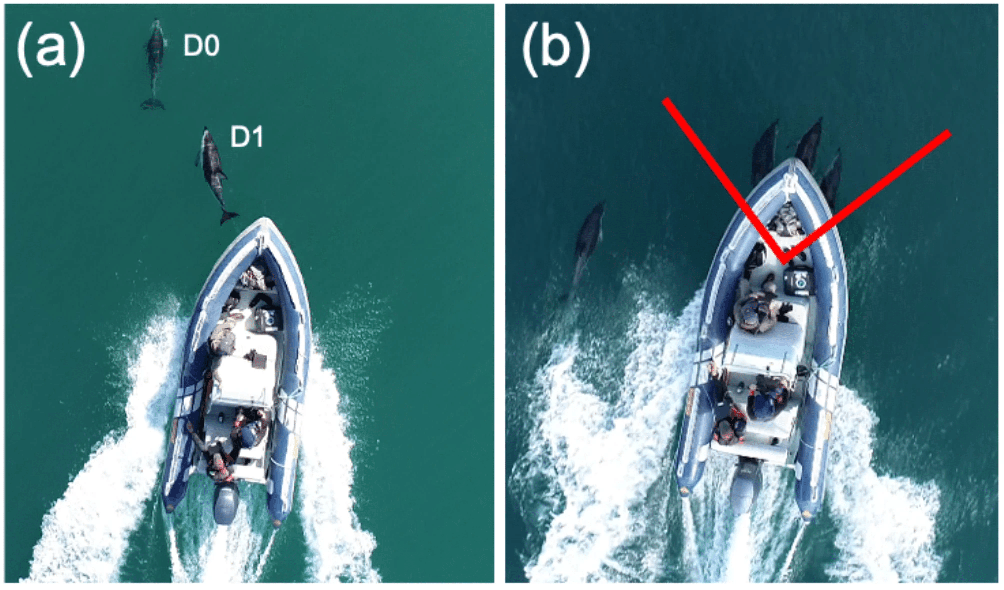Scientists have discovered why dolphins enjoy riding the waves so much.
During a sea voyage, the sight of dolphins near the ship always brings a sense of celebration, but for biologists, it also sparks scientific curiosity. Scientists are particularly interested in why these agile creatures often choose to swim right in front of the ship's bow. There has long been a suspicion that these clever animals are not just having fun.
Recently, a team of researchers from the United States set out to investigate this. They embarked on an expedition to the shores of New Zealand, where dark dolphins (Lagenorhynchus obscurus) are known for their magnificent flips and other acrobatic feats above the water.
As the biologists had anticipated, the animals frequently approached their research vessel, often swimming right in front of the bow. Every time such a fortunate opportunity arose, the dolphins were observed using a drone equipped with a camera.

In an article for the journal Scientific Reports, the scientists explained that they faced a challenging task — keeping the quadcopter as low as possible and directing the camera straight at the animals during their swift movements: it was essential to record how the dolphins breathe while "chasing" the vessel and compare it to their breathing during any regular swim. The footage was reviewed at minimal speed to try to capture every breath of the dolphin.
Ultimately, it was established that, on average, the breathing rate of dolphins while accompanying the ship was 45 percent lower than during free swimming at speeds above four meters per second: while swimming in front of the ship, the animals averaged about six breaths per minute, whereas in free swimming, they took approximately 10. This indicates that the animals significantly conserve energy while riding the ship's wave. One could say they are resting.
Interestingly, a similar trend had previously been noted in trained bottlenose dolphins, but specialists assumed that these animals acquired this skill not on their own, but through interaction with humans. This is why it was fundamentally important to observe wild dolphins.
The researchers emphasized that energy conservation while swimming near ships does not negate the enjoyment derived from the process: evidently, dolphins combine the pleasant with the beneficial.